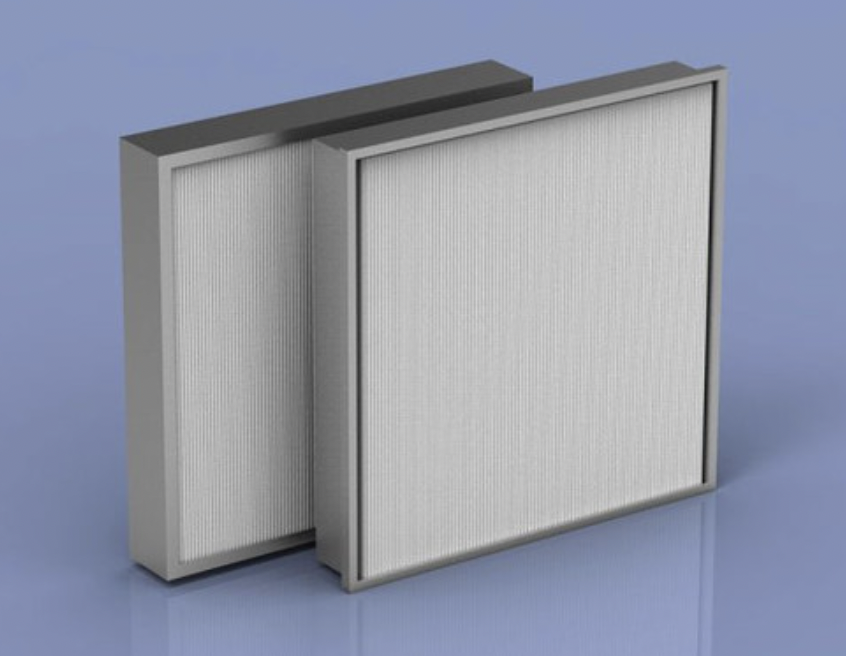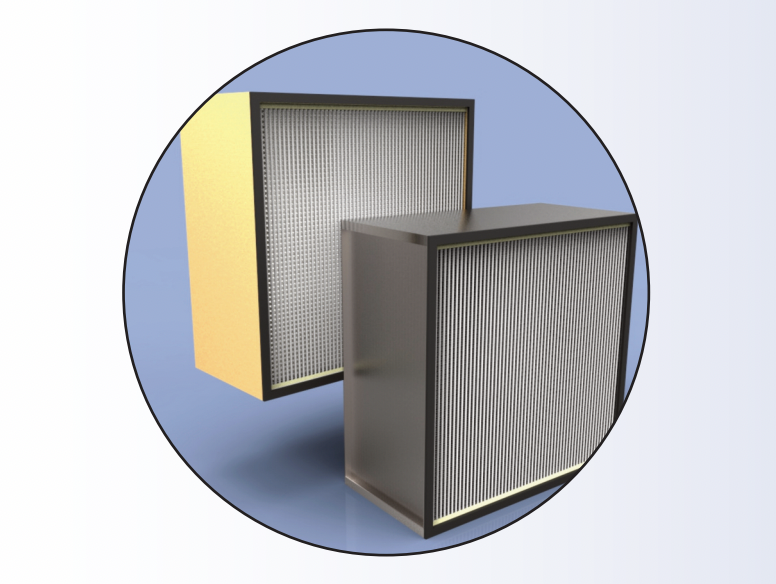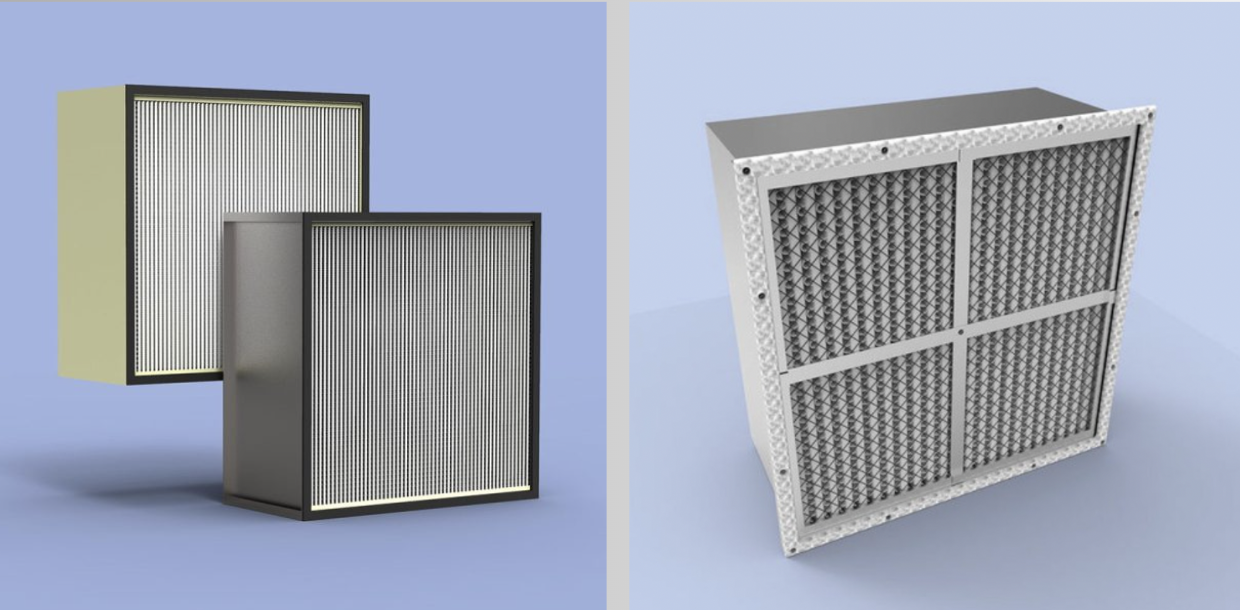Posted by Spycor LLC on Jun 10th 2025
HEPA Filter vs. MERV: What’s the
Difference?
When it comes to improving indoor air quality, understanding the difference between HEPA filters and MERV ratings is essential. Whether you're looking for air purifier filters for allergies, upgrading your HVAC air filters in a commercial setting, or simply trying to keep your home air clean and healthy, the choice between HEPA vs. MERV can significantly impact performance. In this guide, we break down what each filter type means, how they work, where they’re best used, and which option offers the right level of protection for your needs. Let’s explore the key differences to help you choose the best air filtration system for your environment—and breathe easier every day.
Understanding Air Filters: Why They Matter
Air filters are the unsung heroes of indoor air quality. They trap airborne particles like dust, pollen, pet dander, mold spores, and even bacteria, preventing them from circulating in your home or workplace. Poor air quality can exacerbate allergies, asthma, and respiratory issues, making effective filtration essential. According to the EPA, indoor air can be 2–5 times more polluted than outdoor air, underscoring the need for high-quality HVAC air filters or air purifier filters.
What is a MERV Rating?

Minimum Efficiency Reporting Value (MERV) is a standard developed by the American Society of Heating, Refrigerating, and Air-Conditioning Engineers (ASHRAE) to measure air filter efficiency. The MERV rating chart ranges from 1 to 16, with higher numbers indicating better filtration of smaller particles (0.3 to 10 microns). Unlike HEPA filters, MERV is a rating system, not a specific filter type.
How MERV Ratings Work
MERV ratings reflect a filter’s ability to capture particles in three size ranges: 0.3–1.0 microns, 1.0–3.0 microns, and 3.0–10.0 microns. Here’s a breakdown:
- MERV 1–4: Traps large particles like dust, pollen, and textile fibers. Used in basic residential settings or window AC units.
- MERV 5–8: Captures smaller particles like mold spores, pet dander, and hair spray. Common in mid-range residential and commercial HVAC systems.
- MERV 9–12: Filters fine particles like lead dust, auto emissions, and bacteria. Ideal for high-end residential or commercial spaces.
- MERV 13–16: Captures microscopic particles like tobacco smoke and some viruses. Used in hospitals, superior commercial buildings, or homes with health concerns.
For example, a MERV 13 filter traps less than 75% of 0.3–1.0 micron particles but over 90% of 3.0–10.0 micron particles. However, higher MERV ratings increase airflow resistance, which can strain HVAC systems if not compatible.
Applications of MERV Filters
MERV-rated filters are versatile, fitting most HVAC air filters in residential, commercial, and industrial settings. They’re cost-effective and widely available, making them a go-to for improving indoor air quality without overhauling your system. At Spycor, you can explore MERV-rated filters designed for various applications, ensuring compatibility and performance.
What is a HEPA Filter?

High-Efficiency Particulate Air (HEPA) filters are the gold standard for air filter efficiency. Defined by the U.S. Department of Energy, a true HEPA filter must capture at least 99.97% of 0.3 micron particles—the most penetrating particle size (MPPS). Particles larger or smaller are trapped with even higher efficiency. HEPA filters use a dense mat of randomly arranged fibers, leveraging mechanisms like impaction, interception, and diffusion to capture contaminants.
How HEPA Filters Work
HEPA filters excel at trapping airborne particles as small as 0.3 microns, including:
- Dust, pollen, and mold spores
- Pet dander and allergens
- Bacteria and some viruses (e.g., 0.06–0.12 microns)
- Fine particulate matter (PM2.5)
- Their superior performance makes them ideal for environments requiring pristine air, such as hospitals, laboratories, and cleanrooms. At Spycor, HEPA filters are available for commercial and industrial applications, offering unmatched air purity.
Applications of HEPA Filters
Unlike MERV filters, HEPA filters are too dense for most residential HVAC systems due to high airflow resistance. They’re commonly found in:
- HEPA air purifiers for targeted room filtration
- Standalone commercial air filtration units
- Medical facilities and cleanrooms
- Homes with severe allergies or asthma
For homeowners, portable air purifiers with HEPA filters are a practical way to achieve medical-grade filtration without modifying HVAC systems.
HEPA vs MERV: Key Differences
Understanding the MERV vs HEPA filter comparison is crucial for selecting the right filter. Here’s a detailed comparison:

Efficiency: HEPA Outperforms MERV
HEPA filters are unmatched in capturing 0.3 micron particles, achieving 99.97% efficiency. Even MERV 16 filters, the highest MERV rating, capture only about 95% of 0.3-micron particles. Informally, HEPA filters equate to a MERV 17–20 rating, surpassing ASHRAE standards for MERV testing.
Applications: Where Each Shines
- MERV Filters: Perfect for HVAC air filters in homes, offices, and commercial buildings. MERV 8–12 suits most residential needs, while MERV 13–16 is ideal for health-sensitive or commercial settings.
- HEPA Filters: Essential for critical environments or air purifier filters in homes with allergies, asthma, or respiratory concerns. They’re less common in standard HVAC systems due to airflow restrictions.
Choosing the Right Filter: HEPA or MERV?
Selecting between a HEPA filter and a MERV-rated filter depends on your air quality needs, HVAC system, and budget. Here’s how to decide:
For Homeowners
- Best for General Use: MERV 7–12 filters balance air filter efficiency and HVAC compatibility. They trap allergens like pollen, dust, and pet dander, improving indoor air quality without straining your system. Check out Spycor’s MERV filters for residential options.
- Best for Allergies/Asthma: If you or family members suffer from severe allergies or asthma, consider a portable HEPA air purifier for bedrooms or living areas. HEPA filters capture finer particles, reducing triggers like mold spores and PM2.5.
- HVAC Considerations: Avoid MERV 13 or higher unless your HVAC system is designed for it. High airflow resistance can reduce efficiency, increase energy bills, or damage equipment. Consult an HVAC professional to confirm compatibility.
For Commercial and Industrial Settings
- Standard Commercial Needs: MERV 9–13 filters are ideal for offices, retail spaces, and schools, offering robust filtration for dust, bacteria, and smoke. Spycor’s MERV-rated filters meet these demands.
- High-Risk Environments: Hospitals, labs, or cleanrooms require HEPA filters for maximum air purity. Spycor’s HEPA filters are designed for these critical applications.
- COVID-19 Mitigation: The CDC and ASHRAE recommend MERV 13 or higher to reduce airborne virus transmission. For superior protection, HEPA filters in standalone units are more effective at capturing virus-sized particles (0.06–0.12 microns).
Conclusion: HEPA or MERV—Which is Right
for You?
The difference between HEPA and MERV filters boils down to efficiency, application, and compatibility. MERV-rated filters (1–16) offer versatile, cost-effective filtration for HVAC systems, with MERV 8–12 ideal for homes and MERV 13–16 for commercial spaces. HEPA filters, with 99.97% efficiency at 0.3 microns, are unmatched for medical-grade air purity but are better suited for air purifiers or specialized systems.
By assessing your indoor air quality needs, HVAC compatibility, and budget, you can choose the right filter to breathe cleaner, healthier air. Ready to upgrade your air filtration system? Explore Spycor’s HEPA filters and MERV filters today, or contact their team for expert guidance.
FAQs About HEPA Filters and MERV Ratings
What is the main difference between HEPA and MERV filters?
HEPA filters capture 99.97% of 0.3-micron particles, making them more efficient than MERV filters, which range from 1–16 and vary in efficiency (e.g., MERV 13 captures <75% of 0.3–1.0 micron particles). HEPA filters are ideal for medical-grade applications, while MERV filters suit most HVAC systems.
Can I use a HEPA filter in my home HVAC system?
Most residential HVAC systems can’t support HEPA filters due to their high airflow resistance, which can strain the system. Instead, use a MERV 8–12 filter or a portable HEPA air purifier for targeted filtration.
What MERV rating is best for allergies?
For allergies, MERV 9–12 filters are effective at capturing allergens like pollen, pet dander, and mold spores. If symptoms are severe, consider a HEPA air purifier for rooms where you spend the most time.
How often should I replace HEPA and MERV filters?
Replace MERV 7–12 filters every 3–6 months, MERV 13–16 every 2–3 months, and HEPA filters every 2–3 months, depending on air quality and usage. Check manufacturer recommendations for specifics.
Are HEPA filters worth the cost?
HEPA filters are worth it for those with allergies, asthma, or health concerns requiring ultra-clean air. They’re more expensive but offer unmatched filtration. For general use, MERV 8–13 filters are more cost-effective.
What is a MERV 13 filter used for?
A MERV 13 filter traps fine particles like bacteria, smoke, and some viruses, making it ideal for commercial buildings, hospitals, or homes with health-conscious residents. It’s recommended by the CDC for reducing airborne virus transmission.
Where can I buy HEPA and MERV filters?
You can purchase high-quality HEPA filters and MERV-rated filters from Spycor.com



